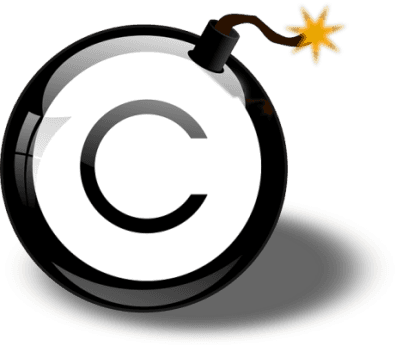A recent legal decision pertains to an interim injunction granted by Delhi High Court against a public broadcaster. Doordarshan India’s Central Government founded public service broadcaster, a division of Prasar Bharati, was in the legal broil for indemnifying itself from legal liability rather than acting in the interest of public which in turn contributed in cooperating in the copyright and moral rights infringement perpetrated by the producer against author and artist.
Hon’ble High Court of Delhi issued an interim injunction against Doordarshan in a matter between acclaimed playwright, Dr. Sayeed Alam, well-known Indian actor, Mr. Thomas Alter (Plaintiffs) and Doordarshan, Television News Features and Mr. Satya Prakash (Defendants). Dr. Alam is the director and script writer for the critically acclaimed play Maualana Azad, starring Mr. Alter.
As part of production of programmes for its channel, Doordarshan, in July 2009, issued a notification regarding general commissioning of programmes for DD Urdu which contained several eligibility criteria. In furtherance of which Mr. Satya Prakash (defendant no.2), television programme producer desirous of producing show for the said channel, approached Dr.Alam to write the script and screenplay for a television serial based on Maulana Azad, an agreement was entered into between Dr.Alam and Television News Features (a firm controlled by Mr. Prakash) for a documentary series on DD Urdu titled ‘Ghubar-E-Khatir’ for 52 episodes of 29 minutes each. Dr.Alam was to be paid a fee per episode.
Defendant 2, on Dr.Alam’s recommendation, approached Mr. Alter for the title role of Maulana as well as the anchor/ narrator of the series. An agreement to the same effect was entered into between TVNF and Mr. Alter. Dr.Alam authored a script for the episodes.
A script for the series ‘Ghubar-e-Khatir’ was presented before the Evaluation Committee of Doordarshan, with Mr. Prakash reiterating the terms of the Agreements entered into with Plaintiffs that Dr.Alam would be involved in the project and Mr. Alter would play the title role as well as that of the narrator. ‘Ghubar-e-Khatir’ was shortlisted by Doordarshan and a detailed proposal was sought. In furtherance of which introductory scenes which involved Mr. Alter as the anchor was shot under the direction of Dr.Alam. On completion of shooting for introductory scenes apart from fixing a tentative date for the next shoot, the Plaintiffs received no other communication from the Defendant, despite making repeated unsuccessful attempts to communicate.
To the shock and surprise of the Plaintiffs, Plaintiffs learnt that the Defendant had gone ahead with the project with a different actor and writer. Plaintiffs immediately informed Doordarshan of the double cross committed by the Defendant No.2. Furtherance of which, Doordarshan sent a letter demanding clarification to the Defendant.
Defendant replied to the letter stating that all terms of the contracts had been duly complied with and claimed no breach of any terms by providing its justification and continued with the production of the Series in contravention of the agreements entered into with the Plaintiffs. The Advisor, DD Urdu and the Deputy Director General decided to accept the justifications provided by the defendants, ignoring the breach of contracts and infringement of copyright committed by them.
Defendants proceeded with broadcasting of ‘Ghubar-e-Khatir’ on DD Urdu. The Plaintiffs issued a legal notice to all the Defendants requiring Mr. Prakash to issue a clarification in the media that the serial was not authorized by them and for DD Urdu to stop telecasting the same. However, there was no reply to the legal notice. Having no recourse, the Plaintiffs approached, Delhi High Court, praying for interim injunction against the Defendants.
Plaintiffs contended that “firstly the action of the defendants constituted a clear breach of contract, secondly, the action of the defendants breached the copyright of Dr.Alam in the storyline, script, screenplay and characterisation. (As the author, he is the first owner of the copyright under S. 17, Copyright Act); thirdly, the action of the defendants breached the copyright of Mr. Alter for his performance as anchor/ narrator under S. 38A, Copyright Act and fourthly, the action of the defendants have violated the moral rights of the plaintiffs. They have also attempted to pass off the infringing works as that of the plaintiffs.”
Defendant on the other hand contended that the work commissioned by Mr. Prakash wholly and squarely falls under ‘work for hire’ hence Dr.Alam cannot claim right over it. But the Hon’ble Court after considering the arguments advanced by the Plaintiffs that the Agreement between Dr.Alam and TVNF clearly indicated that copyright in the script would remain with Dr.Alam, ruled in favour of the Plaintiffs. Further the Hon’ble Court, while granting interim relief in favour of the Plaintiffs observed that Mr. Prakash would not have met the eligibility criteria of Doordarshan if he had not involved Dr.Alam and Doordarshan overlooked the fact that there was a clear caution from airing the infringing programme for need of permission and payment issues. Considering all these and other factors which weighed in favour of the Plaintiffs the Hon’ble court granted interim injunction restraining the Defendants from using the Plaintiff’s work.
The above case is an eye opener of sorts, which brings to light arrangements parties enter into in order to safeguard themselves from liability despite the same going against the interest of public and transgressing on the rights of others. This reaffirms the stance of the courts to tear open and look behind the veil to establish the spirit of law.
Authored by Bhuvana S. Babu
Source 1: Please note the above article is heavily dependent on the information given in the article titled “Short-sighted Doordarshan Drama” by L. Gopika Murthy which can be accessed through this link http://spicyip.com/2015/09/short-sighted-doordarshan-drama.html due to limitations in acquiring a copy of the order. We apologise for any inadvertent error in the article caused due to access to limited resource.
Source 2



